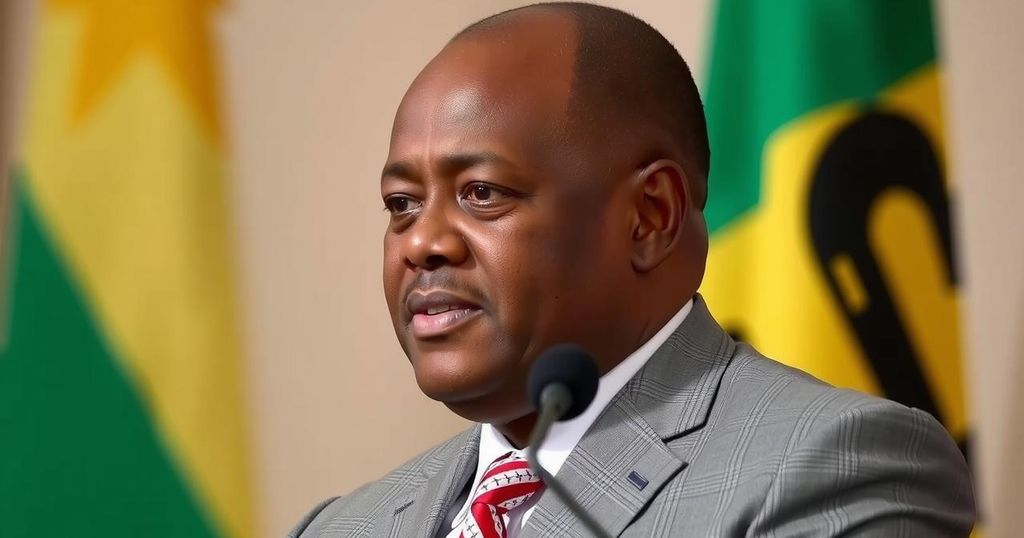Ghana’s President-elect John Mahama: High Hopes for Economic Transformation

John Mahama’s return as Ghana’s President has sparked hopes for economic reform, including job creation and tax cuts. His campaign emphasized accountability and the need for an efficient government to address pressing issues such as corruption and high unemployment. Mahama faces considerable expectations from voters following his election victory, compelling him to deliver substantial changes.
John Mahama’s recent election as Ghana’s President has raised considerable optimism among citizens who anticipate changes in the nation’s economic landscape. Mahama, who secured his return to power with a decisive 56.6% of the vote against his opponent Mahamudu Bawumia, now faces significant pressure to deliver on his campaign promises. With the economy in a precarious state, stemming from soaring living costs and high unemployment rates, the new administration is expected to implement tax reductions and bolster job creation.
Public sentiment, as expressed by individuals like Belinda Amuzu, a teacher in Tamale, reflects a widespread desire for economic reform: “I’m expecting the new government to change the economy, so that the hardship will come down. He should also prosecute corrupt officials so that it will be a lesson to others.”
The challenges confronting Mahama are substantial, as he has vowed to streamline the cabinet and increase public service efficiency. Renowned economist Prof. Godfred Bokpin emphasized the urgent need for credible leadership and efficient governance to safeguard Ghana’s future. Mahama has committed to reducing cabinet size and fostering economic growth through initiatives such as creating night-time job opportunities.
Despite these promises, skepticism lies in the viability of his economic strategies. Critics argue that the anticipated tax cuts and job creation initiatives lack thorough cost-benefit analysis, leading to concerns about their feasibility. Nevertheless, Mahama expressed confidence in renegotiating the terms of the IMF loan to facilitate social programs.
Corruption remains a critical concern in Ghana’s governance, as Mahama faces scrutiny regarding his previous administration. He has pledged to address this issue by holding corrupt officials accountable and investigating past governmental conduct.
In his victory address, Mahama articulated the gravity of public expectations: “Expectations of Ghanaians are very high, and we cannot afford to disappoint them. Our best days are not behind us; our best days are ahead of us. Forward ever – backwards never.” His commitment to a more accountable and prosperous governance will be tested in the coming months as he seeks to fulfill the hopes of the Ghanaian populace.
Ghana has recently transitioned power, with John Mahama returning to the presidency after an eight-year hiatus. His victory comes amid growing dissatisfaction with the previous administration, particularly concerning the management of the economy, which has faced serious challenges, including inflation and high rates of unemployment. Voter sentiments highlight a yearning for effective leadership and transparency, particularly in addressing economic hardship and corruption. Mahama’s campaign capitalized on critiques of the outgoing government, promising significant reforms in governance and economic management.
In conclusion, John Mahama’s election has ignited high expectations among Ghanaians for economic revitalization and a crackdown on corruption. The challenges ahead are daunting, particularly regarding the implementation of ambitious job creation initiatives and tax reforms necessary to alleviate the current economic strain. With a strengthening of his cabinet focused on merit and the commitment to reduce the burden of nuisance taxes, Mahama aims to restore public trust and foster a productive governance framework. However, the path forward demands careful navigation of both economic recovery and accountability to fulfill the aspirations of the electorate.
Original Source: www.bbc.co.uk







